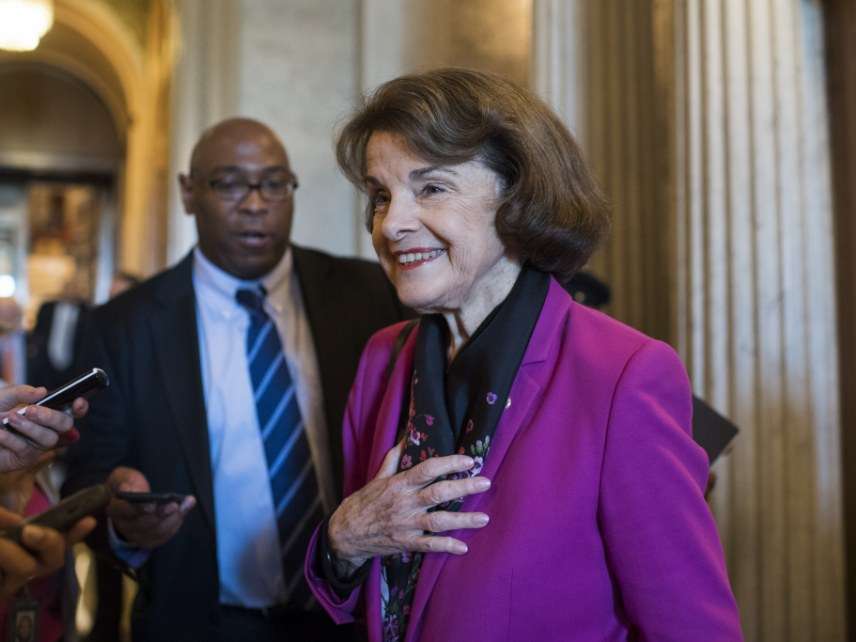Feinstein Breezes to Victory, Collapsing that 'Challenged from the Left' Narrative
But once again, California voters will get a choice between two Democrats for the Senate in November.

A lot of ink (and pixels) was spilled over the fact that Sen. Dianne Feinstein (D-Calif.) lost the support of her own state party for her re-election. Members of the California Democrats instead threw their endorsement to one of her many challengers, state Senate leader Kevin de Leon.
Well the results of yesterday's primaries aren't official, but unless some sort of miracle happens, Feinstein absolutely wiped the floor with de Leon. With more than 97 percent of the vote counted, Feinstein is ahead of de Leon, 43.9 percent to 11.9 percent.
At least de Leon hit double-digits. Most other Democratic challengers didn't even hit 1 percent. If you added up the votes of every Democratic challenger to Feinstein and combined them, they didn't even get half as many votes as she did.
The good news for de Leon (and the bad news for Californians who want actual election choices) is that he'll probably get a second chance to unseat Feinstein in November. De Leon is currently ahead of the top Republican challenger, James P. Bradley, who has 8.8 percent of the vote. Thanks to California's terrible "top two" primary, Californians will have the "choice" of two Democrats on the November ballot. The same thing happened in 2016, allowing Kamala Harris to breeze her way into the Senate on the strength of institutional support and name recognition. Many Californians who cast their ballots didn't even bother with the Senate election because of the lack of actual choices. Don't be surprised if that happens again this November.
I joked yesterday that this was the "National Media Finally Learn How California's Elections Work" primary. The Golden State's elections typically do not get huge amounts of national attention, given how predictable our voting habits are (both in the blue coastal enclaves and the red inland communities). But the midterms this year are all about whether there's a real "blue wave" that could change which party controls Congress. The possibility that some seats in California could change party hands led to increased coverage of California politics, and curiosity about whether the state's increasingly Democratic cast meant that Feinstein (a nannyish big-government liberal who consistently supports the national security state and has only recently finally come around on marijuana legalization) was no longer "left" enough for Californians. This sudden interest resulted in some "Is Feinstein going to lose her primary?" analysis from folks who didn't quite seem to understand the way California's system works. Once journalists grasped the system, the story became about whether the open primaries could lead to Democrats being "locked out" of the November vote in some important House races. That does not appear to be happening.
Feinstein's easy win here is as a corrective to the narrative there's some sort of insurgent, even-further-left-wing, socialist/progressive, Bernie Sanders–fueled takeover of the Democratic Party brewing. Such an insurgency obviously exists, but we're not seeing indicators that it represents the party's future. It's more a growing sense among some people that the party doesn't represent them.
Not that Republicans in California are faring any better. As of the end of May, more voters in California are registered as independents than as Republicans. But thanks to California's run-off elections, the fall ballot won't reflect the diversity of the voters' political identities.



Show Comments (39)